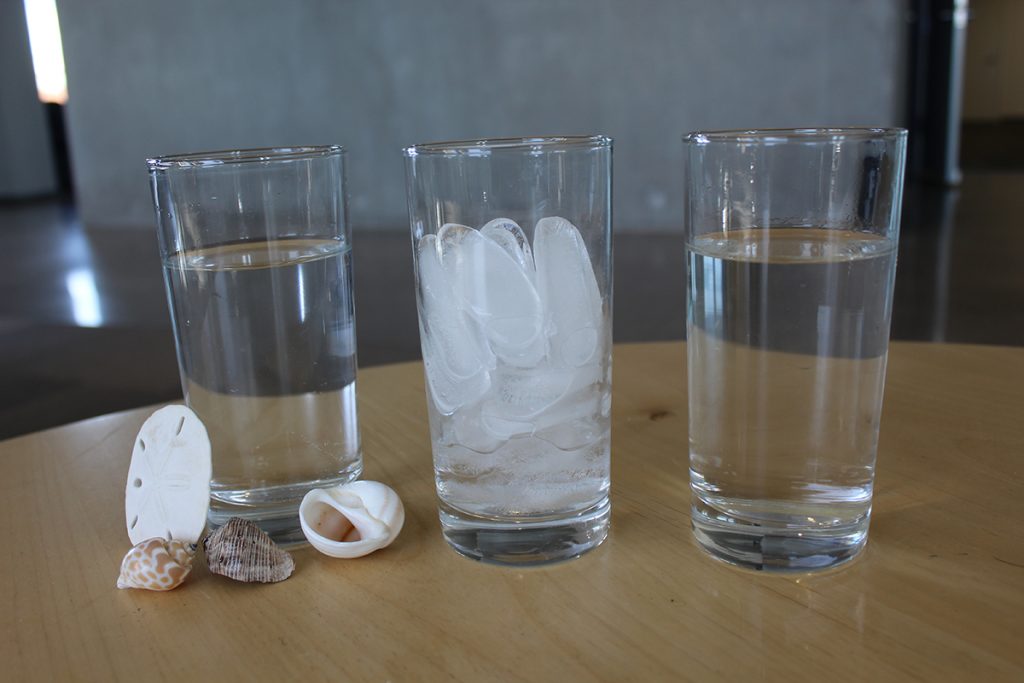
“Water, water, every where, Nor any drop to drink.” That’s a line from “The Rime of the Ancient Mariner by Samuel Taylor Coleridge. It’s also the reality for thousands of people every year when disasters strike along coastlines and broken pipes and flooded infrastructure leave access to nothing but seawater.
This past academic year, a team of undergraduate mechanical engineering students set their sights on providing clean, drinkable water during an emergency situation like this by turning seawater into ice.
Each year, seniors from the College of Engineering spend 10 weeks addressing real-world challenges that highlight the skills they’ve learned throughout their time at Oregon State. These research projects build confidence, develop problem-solving skills, and establish relationships with faculty members through hands-on experiences.

The team of Francisco Boschetti, Josh Cook, Mason Pratt, and Trevor Whitaker created a preliminary design of a mobile desalination system that fits on a flatbed pickup truck. The design could theoretically meet the minimal daily drinking water need of approximately 300 people. It works by forming ice from salt water, a process called freeze desalination.
“Although technology for saltwater desalination already exists, processes currently used are energy intensive, prone to failures, and potentially harmful to the environment,” said Trevor Whitaker, (‘18 H.B.S., Mechanical Engineering), who wrote his honors thesis on the project. The team aimed to address those issues.
The system they designed consists of an array of vertical tubes submerged in a chamber of water. Coolant enters the tubes at a set inlet temperature below the freezing point of water, causing ice to form on the outer surface.
“The concept is based on the idea that icebergs, which reside in saltwater, are essentially free of salt,” said Deb Pence, professor of mechanical engineering, who advised the group.
The system is designed to handle short-term, small-scale water desalination needs, and it can be powered by supplemental solar energy. Estimated fresh water production, based on the preliminary design, is 318 liters per day with relatively low energy consumption.
“This was an opportunity to do real engineering work and analysis to create a product that could have a positive impact on people,” said Mason Pratt (’18 H.B.S., Mechanical Engineering.)
“This was the most comprehensive and thorough work on a senior project that I can recall,” Pence said. “The team did not lose sight of integration of entire system, and they had a great conceptual design.”
By working on this project, Pratt says he also learned that engineering work can take many forms. “On internships I did engineering work that put design first and analysis second,” he said. “During this research, the analysis and design was completed simultaneously because they influence each other so significantly. Going back and forth between these two ‘styles’ of engineering was new to me, and it was really refreshing.”
Whitaker had similar takeaways from the projects, which he will apply to his continuing education. “The most important knowledge I gained from an engineering perspective was the experience of doing real research,” Whitaker said. “I am starting a graduate program at the University of Utah and I feel much less daunted by the work I will have to do here as a direct result of my undergraduate experience. I learned how to better manage both my time and information.”
CATEGORIES: Uncategorized
